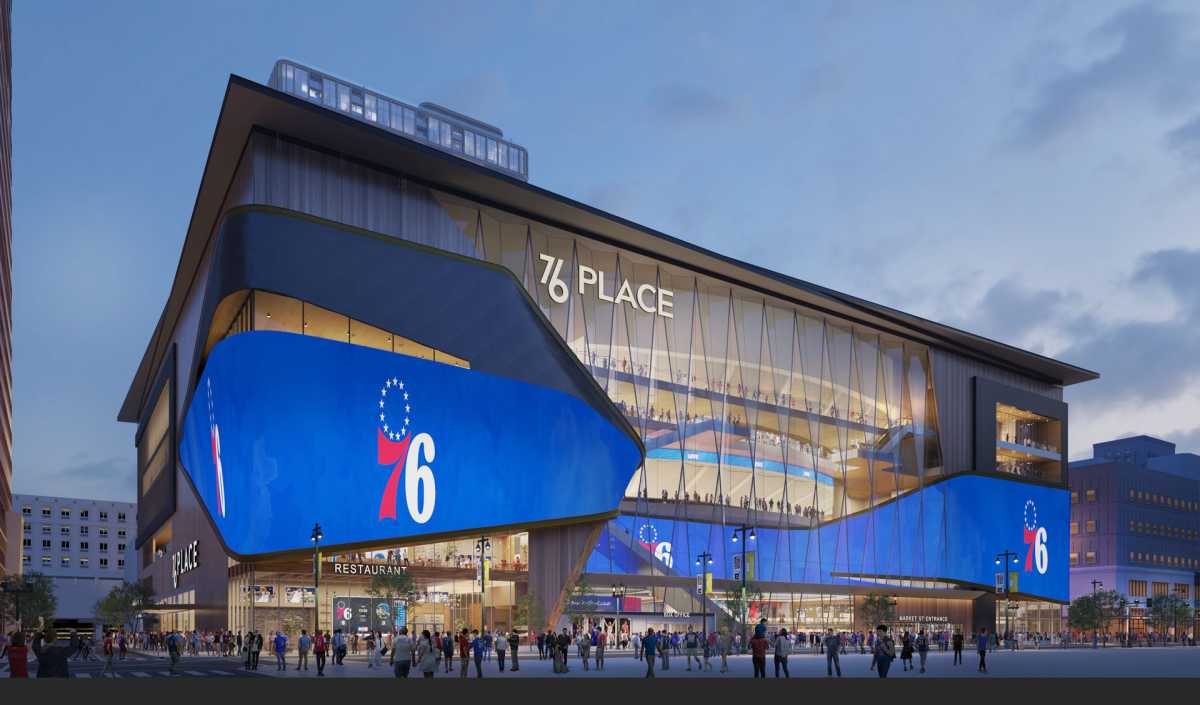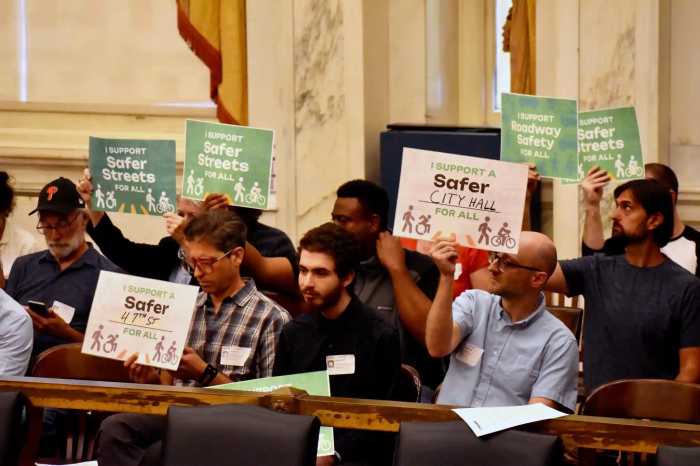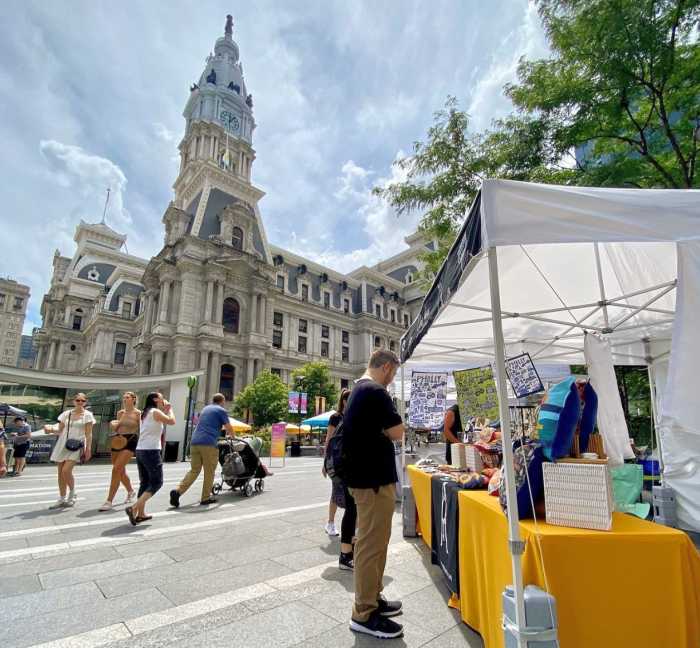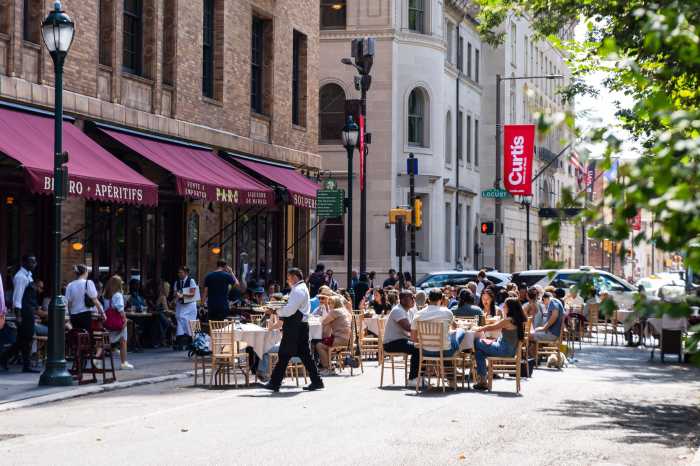A flurry of activity occurred this week surrounding the 76ers proposed arena on Market Street in Center City, including the first city meeting on the plan and an ongoing battle to procure information from government agencies.
The Save Chinatown Coalition, which opposes the project, is fighting to gain access to possible communications between the arena’s developers, elected leaders and city officials to reveal potential backchannel talks.
In recent months, the group has filed right-to-know requests with City Council, the Mayor’s Office, the City Planning Commission, the Office of Transportation, Infrastructure and Sustainability, the Streets Department, SEPTA, PennDOT and the Philadelphia Parking Authority.
Nearly all of the requests were denied, and the coalition is now appealing to the state’s Office of Open Records.
“I think generally the denials that came from all of these agencies are more broadly indicative of the lack of transparency that the coalition and the community have been experiencing so far, since 76 Place was announced,” Annie Lo, a legal fellow at the Asian American Legal Defense and Education Fund, told Metro.
AALDEF and the University of Pennsylvania Carey Law School’s Advocacy for Racial and Civil Justice Clinic are assisting the coalition in its appeals.
The Chinatown group asked for any emails or other documents involving Mayor Jim Kenney, City Councilmember Mark Squilla and Mayor-elect Cherelle Parker, during her time on Council, among other information, according to copies of the denials provided to Metro.
In refusing the requests, the city’s Law Department said the applications were not specific enough.
Only PennDOT provided any information in response to the RTKs. The department sent over “a small number of documents” related to a transportation study being conducted by the arena’s developer, Lo said.
Another focus of the requests was the three impact studies being commissioned by the city through the Philadelphia Industrial Development Corporation.
Two analyses – on the community and economic impacts of the arena – were initially supposed to be released this fall. Then, the timeline was moved to the end of December; however, city officials now say those reports will not be complete and made public until sometime in 2024, after Parker officially becomes mayor.
The studies are being paid for by 76DevCo – a partnership between team owners Josh Harris and David Blitzer and local developer David Adelman – through a blind account set up through PIDC.
76DevCo presented their master plan for the East Market Street site during a lengthy virtual hearing earlier this week.
The meeting was hosted by the Civic Design Review committee, a panel of architects and other planning experts that offers non-binding recommendations. It was the first city meeting on the project, and CDR is expected to convene additional hearings about the arena going forward.
76 Place, as the project is now known, would occupy the area between 10th and 11th streets from Market to Cuthbert streets. The 18,500-seat arena would take up part of the current Fashion District mall.
The $1.5 billion development is also slated to include an apartment tower with nearly 400 units. 76DevCo has pledged to use no city funds, though the developers have said they are open to state and federal dollars. The Sixers hope to open the arena in 2031.
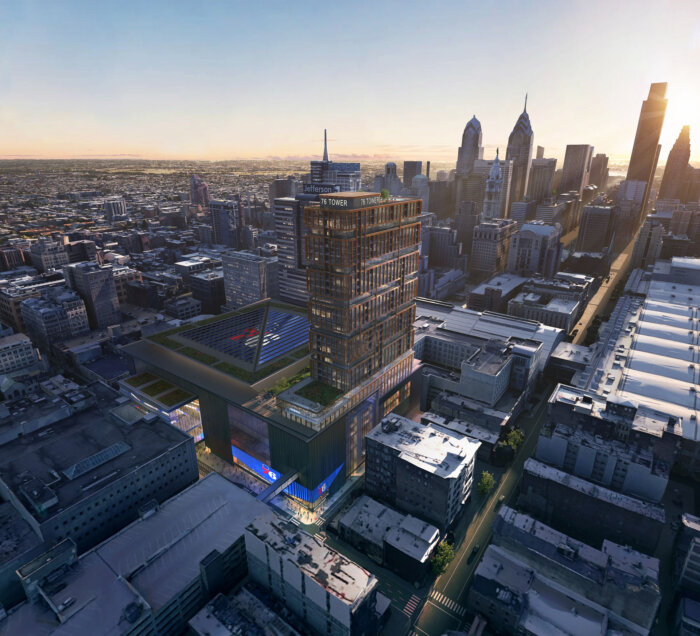
In order to move forward, developers will need Council legislation, which could be introduced as early as next month.
Squilla, who represents the site, would be expected to write those bills. His support is critical, given the tradition of councilmanic prerogative, with members almost always voting with the district council member.
He has not signaled support or opposition to the project. Squilla attended a community meeting about the arena Sunday organized by POWER Interfaith at Mother Bethel AME Church.
“This project has been a real, real tough road for me,” he said at the event, according to KYW Newsradio.



